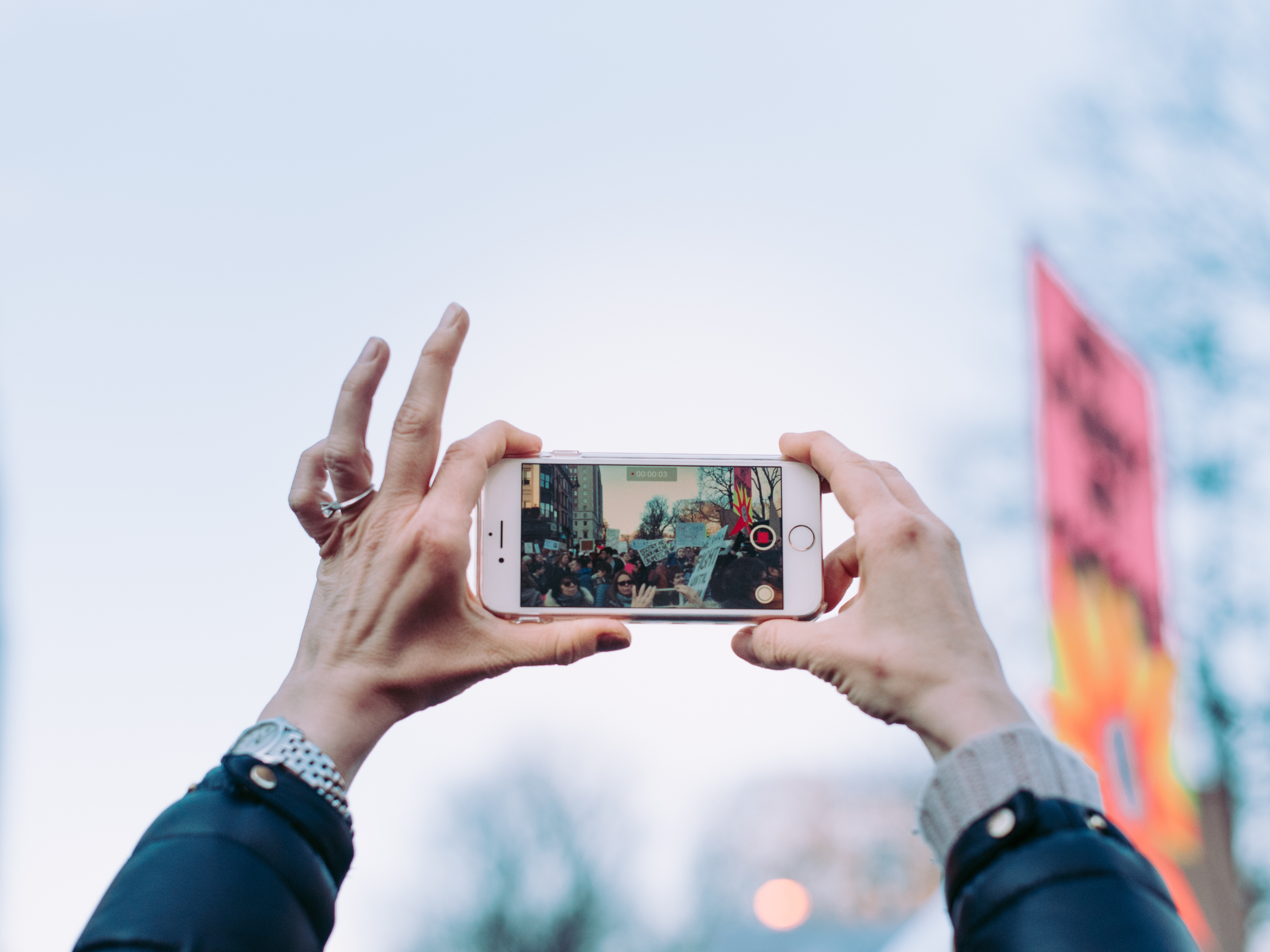Technology has long been a major key in creating positive change in the United States. Photography showed the scars of slavery on the backs of black people. Television cameras and photojournalists exposed the violence that met peaceful protesters in Selma, Alabama. Today, social media carries the torch with campaigns such as #BlackLivesMatter, #NoDAPL, and #YesAllWomen.
Due to its flat structure, social media is a great place to share ideas, find new information, and form supportive groups and communities. Every now and then, I receive a message at work from someone who is having a particularly rough time with mental illness, and they just want to show their appreciation for the helpful content that we share.
But the lack of hierarchy also makes it easy to relentlessly antagonize change-makers in a public forum. It can be tough to bear the unfiltered thoughts and opinions from anonymous people, but there are some ways we can manage these situations, both professionally and personally.
The Social Professional
I’ve managed social media accounts for some organizations—one was an international development organization and another is a psychiatry organization. These are not the most controversial topics, but even these have their adversaries, and those adversaries are not shy about sharing why they dislike the organizations.
A common thread between these two fields is that they each have a handful of dedicated conspiracy theorists who are consistent in their social media activity. While it can be worrisome to have someone consistently spreading false information, going back and forth with the poster is not worth the trouble.
So what can you do? Here is some guidance I use for managing an organization’s social media accounts:
Harmless but disruptive content
• Many trolls harass people for the negative attention, so being blocked is a badge of honor that says “I got to you”—on Twitter, mute them instead of blocking them, so they won’t know that you can’t see their tweets.
• Block or mute spam accounts that post automatically.
• For followers who consistently share irrelevant content, mute instead of blocking to maintain the social media connection.
Criticism of service or product
• Respond to the post (with an apology if something was done wrong).
• Contact the poster via the platform’s private messaging system to have a conversation about what’s gone wrong and try to make it right.
• If the complaints are persistent and unfounded, let it go.
Untrue information
• Correct the person kindly, once, and link to a source to back up your statement.
• Do not get into a debate.
• Over a period of time that seems appropriate and without responding to or mentioning the original poster, share the correct information so that it becomes the dominant narrative on the issue.
Violent threats
• Take a screenshot and send it to your organization’s security leader with a link to the post.
• Do not block or mute the user, as you’ll want to know if they make other threats.
• Report the user to the social media platform.
The Self-Care of Social
I use my personal account to share information that I’m passionate about and one of my passions is social justice. I’m not an activist and have less than 600 followers, but even I have been inundated with hateful responses to some of my tweets. The worst came when I tweeted the following:
I received notifications for nearly 16 hours straight with violent language and imagery about Muslim people, degrading name-calling, and some anti-black racist sentiment for good measure: a suggestion to use my “welfare money to buy some books.” I showed a friend the things that people were sending to me. I was stressed and disheartened. I confessed that I was scared to post anything anymore. He told me someone has to do it and said I was brave for being that person.
Unfortunately, for organizations in which controversial topics are their bread and butter, this negative attention is par for the course. Whether personal or professional, this kind of attack can be traumatic, especially if encountered for an extended period of time.
Some tips for self-care:
• If notifications are sent to your email or phone each time someone interacts with your posts, turn the notifications off.
• Change your settings so that you only see comments and replies from people you follow.
• Remind yourself that the statements are not about you as an individual.
• Step away from social media for a few hours.
• If necessary, let your boss know that the conversation has become abusive and you need some time to distance yourself.
• Look at pictures of baby animals.
• Take a walk outside.
• Seek support from people who believe in the work that you’re doing.
• Make a plan for how you’ll handle similar situations in the future.
Social media can feel like an incredibly dark place, but don’t let hate silence you or your organization’s messages that other people need to hear. Take care and keep tweeting.









